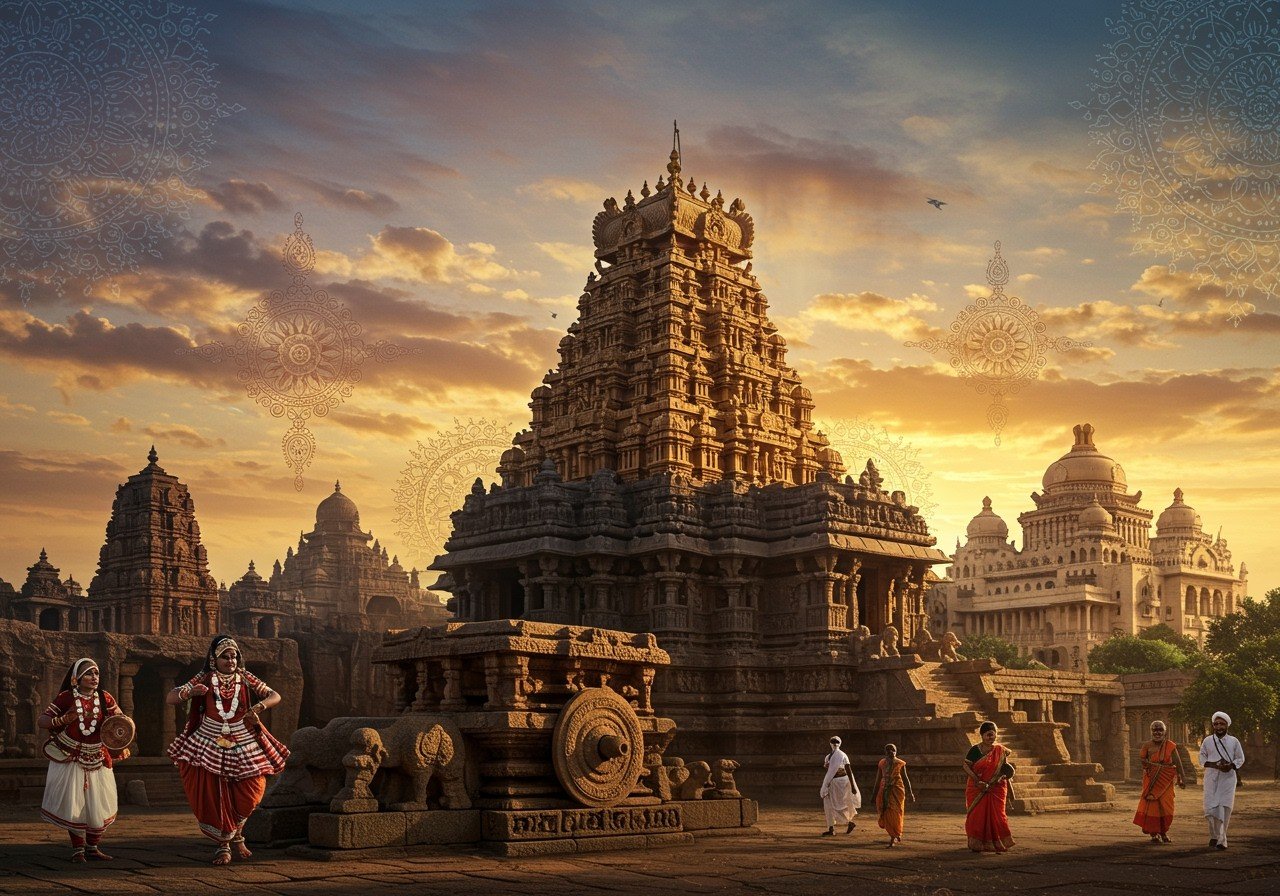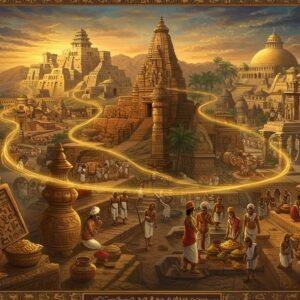
Karnataka, a jewel in South India’s crown, boasts a vibrant tapestry of history, woven with threads of ancient empires, medieval kingdoms, and modern marvels. This exploration delves into Karnataka’s captivating past, highlighting its significant events, influential figures, and enduring cultural contributions.
Ancient Empires: The Dawn of Karnataka’s Civilization
Karnataka’s story begins in the mists of prehistory, with evidence of early human settlements. The Mauryan Empire, under Emperor Ashoka’s benevolent rule, left an indelible mark, as seen in inscriptions and rock edicts. The Satavahana Dynasty (2nd century BCE – 2nd century CE) further enriched the region, fostering the spread of Buddhism. The Kadamba Dynasty, established by Mayurasharma in the 4th century CE, emerged as Karnataka’s first indigenous kingdom, leaving a legacy of unique architectural styles. The Western Ganga Dynasty (4th-10th century CE), patrons of Jainism, contributed significantly to the region’s religious and cultural landscape.
Medieval Kingdoms: A Golden Age of Art and Architecture
Karnataka’s medieval period witnessed the rise of powerful kingdoms – the Chalukyas, Rashtrakutas, and Hoysalas. The Chalukya Dynasty (6th-12th century CE) gifted the world with architectural wonders at Badami, Aihole, and Pattadakal, showcasing their mastery of temple construction. The Rashtrakuta Dynasty extended their influence across the Deccan, promoting literature, arts, and a cosmopolitan culture. The Hoysala Dynasty (10th-14th century CE) perfected the art of intricate temple architecture, epitomized by the breathtaking Chennakesava Temple at Belur and the majestic Hoysaleswara Temple at Halebidu.
Vijayanagara Empire: A Flourishing Era of Prosperity
The Vijayanagara Empire (14th-16th century CE), founded by Harihara and Bukka, ushered in a golden age. Hampi, the empire’s capital, became a bustling hub of architectural marvels, international trade, and artistic expression. The reign of Krishnadevaraya witnessed a flourishing of literature, music, and dance, solidifying Karnataka’s cultural identity. The empire’s decline in the 16th century CE fragmented Karnataka into smaller kingdoms.
Colonial Period: A Time of Transition
Karnataka experienced the influence of colonial powers, including the Portuguese, Dutch, and ultimately, the British. The British East India Company’s arrival in the 17th century CE significantly altered the region’s administration and economy. The Anglo-Mysore Wars, fought between the British and the Mysore Kingdom ruled by Hyder Ali and Tipu Sultan, became a pivotal chapter. Tipu Sultan’s valiant resistance against British expansion ended with his defeat in 1799 CE. British rule brought infrastructural development and modernization, albeit at a cost.
Modern Karnataka: A Blend of Tradition and Innovation
Post-independence, Karnataka has emerged as a dynamic state, seamlessly blending its rich traditions with remarkable progress. It has become a center for technology, education, and industry, with Bengaluru, its capital, earning the title of “Silicon Valley of India.” Karnataka continues to honor its cultural heritage through vibrant festivals, music, dance, and art forms, reflecting its deep historical roots. Karnataka’s journey exemplifies resilience and dynamism, balancing the preservation of its past with an embrace of the future.
Exploring Karnataka’s Rich Heritage with Poojn.in
As you delve deeper into Karnataka’s spiritual and cultural landscape, enhance your experience with authentic puja items and services from Poojn.in. India’s leading online store for cultural and religious goods, Poojn.in offers a wide range of products to enrich your personal worship and celebrations.
-
Brass Puja Items: Discover exquisitely crafted brass items, including diyas, plates, and statues, ideal for creating a sacred space in your home. Explore our collection of brass puja items.
-
Incense and Agarbatti: Immerse your senses in the fragrant world of traditional incense and agarbatti, perfect for creating a calming and spiritual ambiance during your puja rituals. Find your perfect incense at Poojn.in.
-
Spiritual Books and Scriptures: Deepen your understanding of Karnataka’s rich spiritual traditions with our collection of books and scriptures, covering various aspects of Hindu philosophy and rituals. Books on local temple rituals and practices can be found here.
FAQs: Unraveling Karnataka’s History
What is the significance of Hampi in Karnataka’s history? Hampi, the former capital of the Vijayanagara Empire, stands as a UNESCO World Heritage Site, showcasing magnificent ruins that testify to the empire’s grandeur and architectural prowess.
What role did Tipu Sultan play in Karnataka’s history? Tipu Sultan, the ruler of Mysore, fiercely resisted British expansion, becoming a symbol of resistance against colonial rule.
Where can I learn more about Karnataka’s history? “A Concise History of Karnataka” by Suryanath U. Kamath is a highly recommended resource for a comprehensive overview of the state’s historical journey.
If you are interested in specific topics such as the history of Somarama Temple, you might find relevant information on pages like Somarama Temple: A Journey into Sacred History and Somarama Temple Visit: Your Complete Guide.
Additionally, articles like Parshuram Temples Goa and Kerala: A Journey Beyond the Shores provide insights into related historical and cultural aspects of the region.


